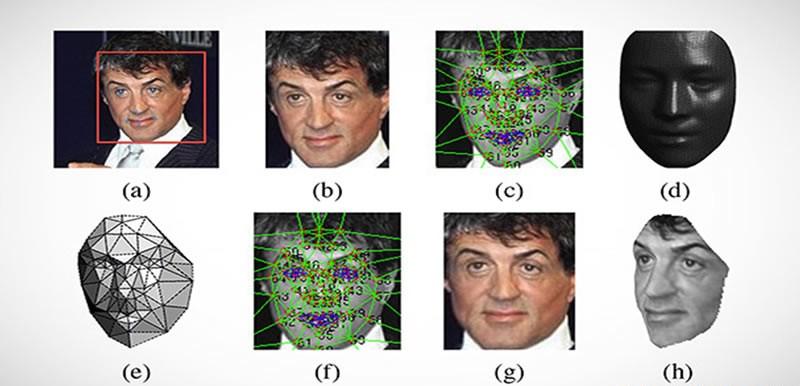The world’s leading social network started rolling out brand new technology that automatically identifies and ‘tags’ people in photos uploaded to the website. Facebook is during the centre of another privacy line after bringing it in.
The feature happens to be expanded from a limited test run into the U.S. become widened across all of the States and ‘most countries’, Facebook said on its official weblog yesterday – and, by standard, it’s turned on. Facebook’s ‘Tag Suggestions’ function was created to speed up the procedure of labeling friends in photos posted on Facebook. If a friend ‘tags’ you in one single picture, the technology will automatically scan your face and then decide to try and find matches among all their pictures. It will then suggest that they ‘tag’ these photos of you aswell. The sudden implementation for the feature, without warning, has sparked concerns among privacy campaigners.
Daniel Hamilton, director of privacy campaign group government Watch, stated: ‘Facebook users will rightly be alarmed to hear that their private information will be found in this way. This is yet another nail in the coffin for online privacy. ‘Websites like Facebook owe it with their users to respect their privacy, maybe not to scan their photo albums with facial recognition software.’ And not all commentators are convinced that opting out will do you any good.
Sarah Jacobsson Purewal, of PC World magazine, said: ‘Opting out won’t keep Facebook from gathering data and recognizing see your face – it will just keep people from tagging you automatically.’ She also warns: ‘Facial recognition technology will ultimately culminate within the capacity to search for individuals using just an image. ‘And that will be the end of privacy as we realize it–imagine, a world in which someone can simply take a photograph of you on the road, in a crowd, or with a telephoto lens, and discover everything about you on the net.’
Internet security consultant firm Sophos first reported the alteration yesterday, after Facebook users stated that the site had enabled the facial recognition option in the past few days without offering users any notice. ‘Yet again, it feels like Twitter is eroding the online privacy of its users by stealth,’ composed Graham Cluley, a senior technology consultant at Sophos, in a blog post.
Facebook, which announced in December that it planned to introduce the solution within the U.S., acknowledged that the feature had been in reality now more widely available. When asked about the Sophos blog post, a spokesman for the ongoing company conceded that they ‘should have already been more clear with people during the roll-out process’. They made clear that tag suggestions would only be designed to friends of those pictured, and that the users can switch off the feature to avoid their names being submit.
But Marc Rotenberg, President of the privacy that is non-profit group Electronic Privacy Information Center, noted that others had offered more users more control when applying facial recognition features. He highlighted Apple’s iPhoto software, which allow users decide whether or never to utilize the technology with their personal photo collections.
Facebook technology, by comparison, operates separately, analysing faces across a broad was of newly uploaded pictures. Mr. Rotenberg stated such something raised questions about which actually identifiable information, such as for instance email addresses, would become related to the photos in Facebook’s database.He also criticised Facebook’s decision to automatically enable the facial-recognition technology for Facebook users. ‘I’m unsure that’s the setting that folks would want to choose. A better option would be to let individuals opt in,’ he said.
A concern that is serious expressed over Twitter and other social networks is the ability to publish photographs online without the express authorization from those pictured. Although its easy for users to ‘de-tag’ themselves, those pictured cannot demand photographs removed.The new feature will raise fears among those who have photographs they would prefer don’t emerged. Sarah Jacobsson Purewal implies as well as switching off recognition that is facial users publish random photos of trees and stuffed pets and label them with their name.
A spokesman from Facebook said: ‘We launched Tag Suggestions to greatly help people include tags of their friends in photos; something that’s currently done more than 100 million times each and every day. ‘Tag Suggestions are only made to people once they add new pictures to the site, and just friends are suggested.’It emerged last week that Google recently made a decision to hold back an identical application that will have allow someone snap a photo of someone’s face using a smartphone, then use the internet to find down who that person is. Bing’s executive president Eric Schmidt told a conference he believed it had been the time that is first company’s engineers had completed a project and shelved it for privacy reasons, CNN reported.
This past year the privacy that is electronic Center filed a complaint about Facebook’s privacy practices using the U.S. Federal Trade Commission, which Mr Rotenberg said was still pending.
The Facebook scientists stated in their paper that society will need to handle these questions as the technology improvements. “The social and cultural implications of face recognition technologies are far reaching, yet the performance that is current in this domain between devices and the human artistic system functions as a buffer from having to deal with one of these implications,” the researchers wrote. The DeepFace system, they added, “has closed the majority of the rest of the space.”
